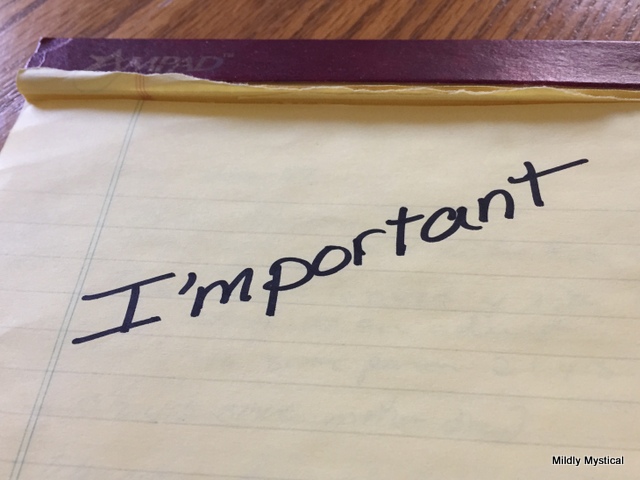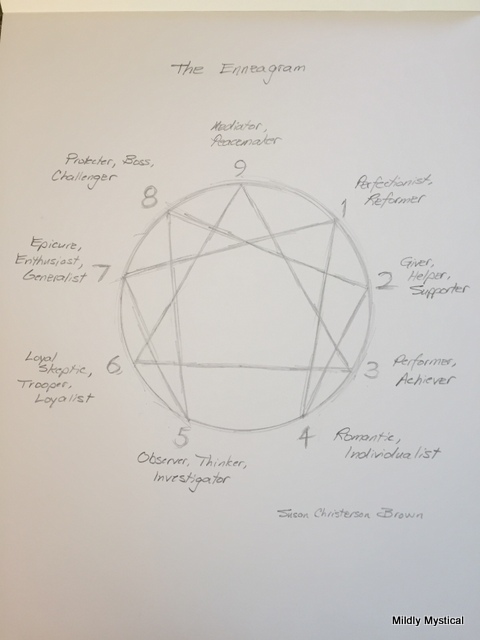This morning I had coffee on my front porch—a rare pleasure that takes more time than I can usually afford. Or so I’ve long convinced myself. Apparently I believe there are more important things to do than taking in the abundance of an early summer morning. That belief has probably caused me to miss out on a lot of other good things as well.

There are so many things I can’t take time for, I tell myself all too often. I have important things to do. I’m portant. As if goodness and value is something I need to manufacture. As if there were not something more vast and wise and powerful that wants to show up through me.
The sure sense of what’s important grows distorted when it becomes “I’m portant.” I’m portant says that that the quality of my life and of those around me is all about me—what I do, what I know, what I contribute. I’m portant is what happens when I lose connection with the source of life and instead believe everything hinges on the effort I make to be safe and worthy and loved.
“Portent” foreshadows what’s to come, and I think of “I’m portant” in that way, as if I’m the one determining what’s to come, as if I were in charge. When I’m trying to be the prime generator of my life, I lose touch with the greater reality. It’s like struggling to touch bottom when I could simply let the water hold me up. Or trading away my place in the magnificence of creation for a small world of my own making.
So I’m practicing creating some space between me and the day’s demands. I’m trying to discern the truly important priorities as opposed to the ego’s clamor of “I’m portant.” Pausing to enjoy the world helps me remember that a vast and powerful life force causes everything to unfold, including my life and work. I have a part to play, but I don’t have the job of making it happen by myself. In fact, when I act as if it’s all up to me—believing that I’m portant—I cut myself off from the flow of life that would carry me forward.
Of course, there’s the reality of everyday life to navigate. Showing up at work, getting kids to school, arriving for appointments on time is part of an orderly, responsible life. We can’t always sit on the porch. But making space within the calendars that drive us is part of a life well-lived.
We are more than our schedules and obligations. Every moment marked by the clock is also a moment that manifests what is timeless. There is a greater reality in which we live and move and have our being. In the moments when we can remember that, there is peace.
Those moments enjoying the lavender budding on new stalks, a wren hopping across the porch, and even the ubiquitous morning glory vines winding up in new places, feel a lot like vacation. I feel connected to a world that encompasses more than the current political climate, one that isn’t pitching me to buy anything.
But old patterns die hard. Part of me wants to focus on the weeds that need pulling. “I’m portant,” is the message when those weeds call to the self that is driven to be useful, to get things done, to make the place look good. Yes, there is a time for weeding. But that work can be held in a wider context, one that honors and appreciates the living, growing world.
I do better when I remember that I’m not so portant after all. My mind is clearer when I’m not trying so hard to think. My heart is more open when I bring awareness and compassion to my own limitations. I move through the world more graciously when I can relax and receive the sensory information all around.
Perhaps instead of portant, I can be present.


